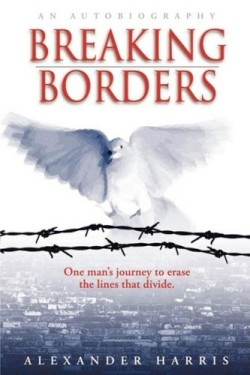Breaking Borders
Alexander Harris a Polish-born American tourism promoter accomplished a great deal in his field; he’s recognized as one of the earliest supporters of travel from the U.S. to countries behind the Iron Curtain. That he lived long enough to achieve this is somewhat surprising. The son of a Jewish factory owner in the city of Lodz Harris was a member of a targeted group who hit the age of military eligibility just as World War II began.
A handful of anti-Semitic incidents during Harris’s childhood were instructive rather than damaging. By 1939 it was challenging to categorize friend and foe; Harris avoided the German authorities only to be swept up by the Russians and sent to a Siberian gulag. He was lucky enough to be released and became an officer in the exiled Polish army which fought alongside the Russians as uneasy allies. Between concentration camps and ill health brought on by persecution nearly all of the memoirist’s friends and family members fell victim to the war. By the time Harris was finally able to visit his neighborhood in Lodz he found the community ineffably changed. “I saw ghosts peering out of every doorway and in the omnipresent spirit of mystery each house told me incredible tales” he writes.
With homeplace and personal ties largely decimated Harris emigrated to America working first (along with his wife) in the garment industry of Manhattan. Once given a chance to run his flamboyant uncle’s travel company the rest was a matter of hard work forward vision and personal charm. In an amazing coincidence years after the war while developing tours in Germany the memoirist met the sniper who shot at him in the incident which won Harris his military honor. The encounter reinforced a core belief that human commonality is more important than politically driven division.
Again and again Harris was given the choice to make an enemy or reach out a hand; always he decided against conflict. He explains the reason in this way: “I believed that if we could break down barriers between feuding societies we could help eradicate the destructive power of ignorance and hatred. I believed that contact with people and confrontation across the table beat the alternative of going to war…”
The author is deeply nostalgic about his romantic relationships (some during wartime) and reveals frank details that verge on boasts. Of visual aids included maps and photographs enhance the narrative though photocopies of newspaper articles aren’t legible.
This uplifting memoir gripping in the beginning and middle demonstrates how the urge for understanding can arise from suffering and sorrow. Harris finds success in one business venture after another and spearheads truly notable advances in international cooperation but Breaking Borders can’t help but lose a little urgency in later chapters when less is at stake. Regardless Harris tells a unique story about a life that touched many others with the willful choice to find the good in people identified as the key to all that followed.
Disclosure: This article is not an endorsement, but a review. The publisher of this book provided free copies of the book and paid a small fee to have their book reviewed by a professional reviewer. Foreword Reviews and Clarion Reviews make no guarantee that the publisher will receive a positive review. Foreword Magazine, Inc. is disclosing this in accordance with the Federal Trade Commission’s 16 CFR, Part 255.

